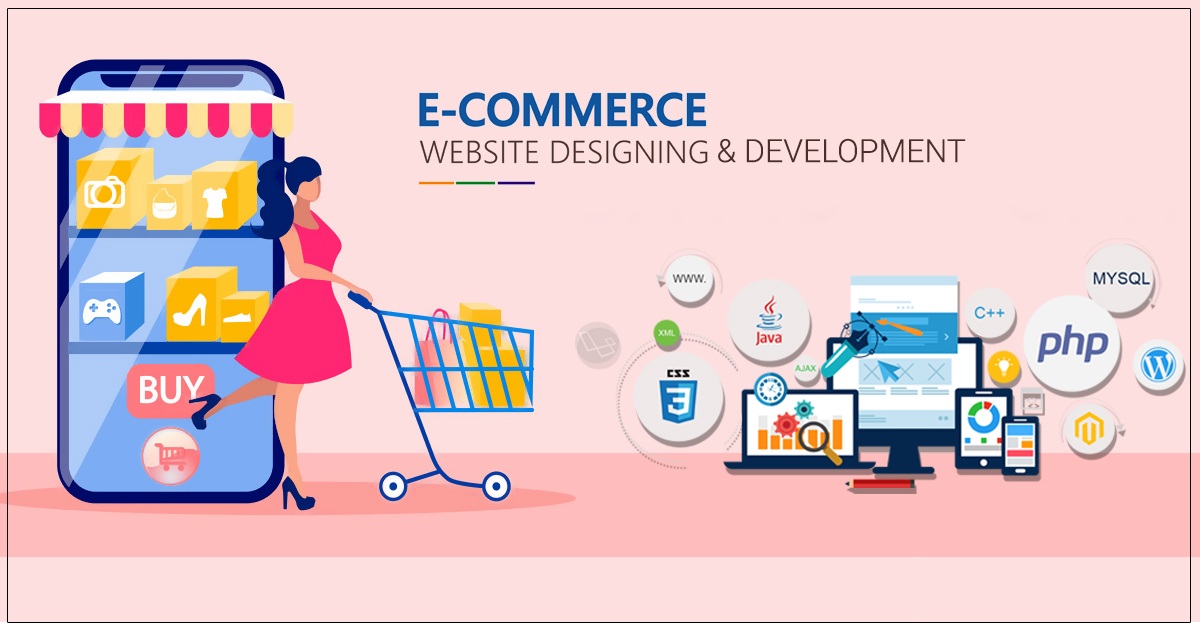Top 5 E-Commerce CMS Platforms
Top 5 E-Commerce CMS Platforms list:
1. Shopify
A flexible e-commerce platform, Shopify has a tonne of unique features. Millions of companies worldwide rely on the platform, which generates billions of dollars in gross merchandise volume.
Considered to be an all-in-one eCommerce platform is Shopify. In a single dashboard, retailers can set up their online businesses, manage their inventory, and handle all orders. You may handle a variety of sell channels with Shopify, including your own store, online marketplaces like Amazon and eBay, social media, and physical stores.
The platform comes with a blog CMS by default, which is fantastic if you want to use SEO to draw customers to your store.
One of the most well-known SaaS eCommerce systems in the world is Shopify. It has developed into a well-liked eCommerce platform for start-up merchants and small enterprises due to its straightforward UI and reasonable cost. That doesn’t mean bigger brands can’t use the CMS, though. It is recommended to review the features list before signing up because the number of features will vary depending on the type of plan you select. Shopify provides a distinct POS system, a variety of free store designs, and free 24/7 support. The drawback is that Shopify charges transaction fees when customers use third-party payment processors.
2. Magento
The best open-source eCommerce platform is known as Magento. The system, which was created in PHP, makes it simple for store owners to develop their online enterprises. All business sizes can use the platform, which also satisfies their B2B, Omnichannel, and mobile commerce demands. Additionally, Magento enables integration with a variety of third-party extensions to produce unique digital retail experiences. Top 5 E-Commerce CMS Platforms Magetno is Best and open-source eCommerce platform.
Over $100 billion in gross merchandise volume is handled by Magento each year, as seen by the world. With more than 300,000 Magento developers throughout the world, Magento has developed a strong community. Additionally, it provides access to the substantial Magento Marketplace, where a variety of extensions can be downloaded. If you run a successful online store, Magento is definitely worth looking into.
3. WordPress
Among the many vendors of eCommerce software on the market, WordPress is unique. This is due to the fact that it is the best option for creating all types of web pages, not only eCommerce websites.
A content management system called WordPress is used by about 28% of all e-commerce websites.
WordPress is an open-source eCommerce CMS platform, in contrast to Shopify. That implies that using their fundamental technology is free of charge.
Additionally, it has a number of free themes that you can install to begin creating your e-commerce website.
You may always apply custom codes if you want to change anything about the theme look. However, to make it simpler to set up and manage their website, many online businesses employ WordPress plugins.
A very well-liked plugin called WooCommerce gives WordPress a tonne of e-commerce features. Almost every eCommerce solution you can think of (MailChimp, HubSpot, or OptiMonk) has released a plugin for simple integration due to its extensive use.
4. BigCommerce
BigCommerce is a well-known star among the many eCommerce software providers allowing you to launch an online business. BigCommerce has drawn more than 55,000 merchants of all sizes because of its many built-in features and customization choices. Particularly well-known companies like Toyota, Natori, and Martha Stewart have long trusted and utilized this technology. BigCommerce is a potent platform that catapults massive, quickly expanding enterprises into the top tiers.
In addition to offering e-stores exceptional scalability, BigCommerce also provides sophisticated SEO and multi-channel integration. Store owners quickly increase their brand’s visibility on social media. Additionally, they have the chance to reach millions of potential clients around the world.
5. OpenCart
An open-source content management system for online stores is called OpenCart. It is noteworthy since it is both exceedingly simple to use and manages to stay free. The case with open-source software isn’t always that!
OpenCart’s CMS is so user-friendly because it combines a straightforward core platform with a wide range of potent extensions. This implies that you may easily build up the foundation of your website before adding add-ons.
Additionally, there are a tonne of free templates offered by third parties that let you build your own OpenCart online store.
Finally, if you require assistance, you can pay for “Enterprise Services.” A one-time bug fix, for instance, that can cure a recurring issue with your website starts at $150. Additionally, you can pay for specialised support and backup storage.






